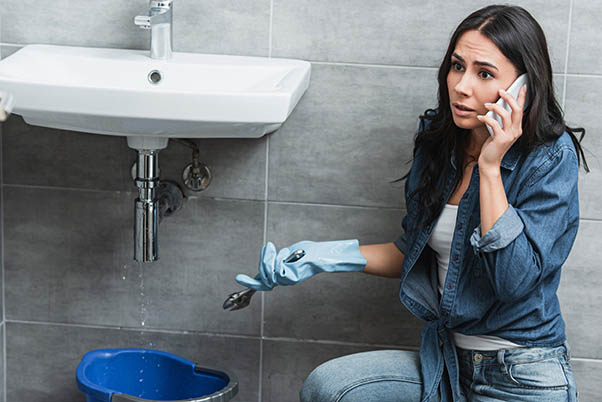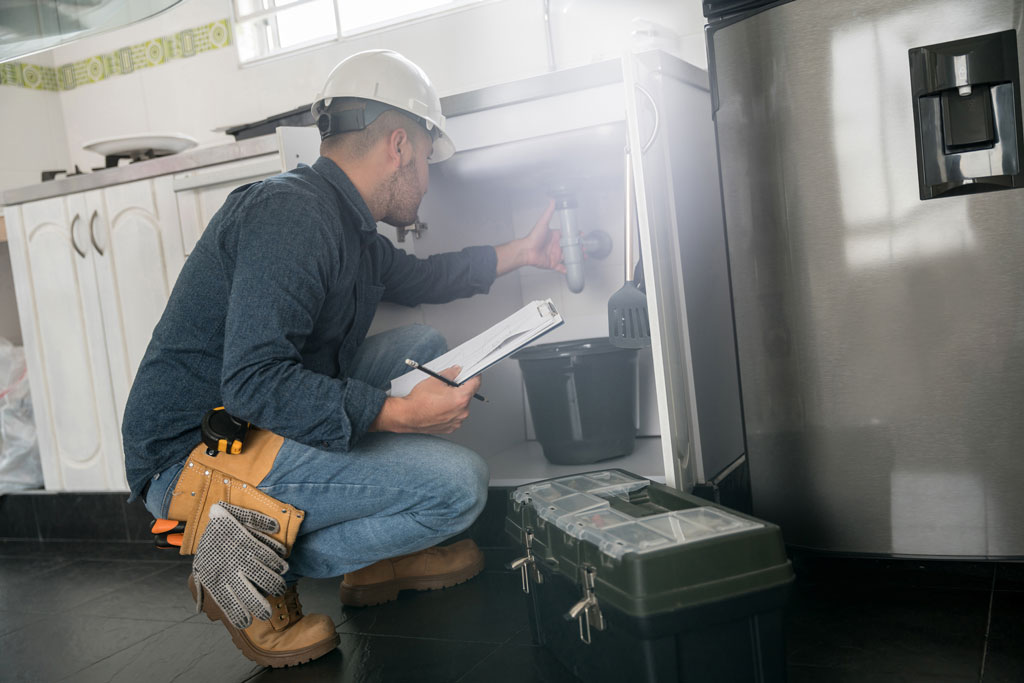Critical Plumbing Solutions: Actions to Follow Until A Plumber Arrives
Critical Plumbing Solutions: Actions to Follow Until A Plumber Arrives
Blog Article
In this article below you will find lots of exceptional help and advice when it comes to Plumbing Emergencies: Tips on What To Do Before.

Plumbing emergencies can strike any time, creating tension and possible damages to your home. Whether it's a burst pipe, a clogged up drainpipe, or a leaking faucet, recognizing how to manage the scenario up until a professional plumbing professional shows up can save you from more issues. This short article gives necessary emergency pipes suggestions to aid you alleviate damage and reclaim control during a pipes situation.
Switch off the Water System
The initial step in any kind of plumbing emergency situation is to shut off the water supply. For local issues, such as a dripping tap or toilet, switch off the shutoff near the fixture. When it comes to a significant leak or ruptured pipeline, locate your home's major water shut-off valve and turn it off quickly. Understanding the location of these shutoffs in advance can save valuable time during an emergency.
Address Little Leaks with Short-lived Repairs
Small leakages can quickly come to be considerable problems if left untreated. Make use of these momentary fixes up until professional aid arrives:
While these solutions aren't permanent, they can assist minimize water loss and damages.
Unclog Drains Securely
A blocked drainpipe can be a frustrating and messy problem. Here's exactly how to tackle it:
If these approaches do not work, avoid utilizing extreme pressure, as it may aggravate the clog.
Manage Overflowing Toilets
An overflowing bathroom can create prompt chaos. Right here's what you must do:
Shut down Your Hot Water Heater
In particular emergency situations, such as a ruptured pipeline, it's important to shut down your hot water heater. This prevents overheating or damage to the device when water quits moving. Switch off the power supply to the hot water heater (electrical or gas) and allow it cool to prevent prospective dangers.
Temporarily Quit a Ruptured Pipeline
A ruptured pipe can result in significant water damage in minutes. To minimize the concern:
Call a specialist plumbing technician right away to deal with the problem permanently.
Take Care Of Frozen Water Lines Very Carefully
In chillier climates, icy pipelines are a common emergency. If you believe an icy pipe:
Protect against Additional Damage
Taking fast action to minimize damages can save you money and time in the long run. Here's just how:
. Have an Emergency Pipes Kit
Prepare a fundamental plumbing emergency package to manage small problems properly. Your kit needs to include:
Having these devices on hand can make a considerable difference in your capacity to manage emergency situations.
Know When to Call a Specialist.
While quick fixes can assist momentarily, certain plumbing concerns require instant specialist attention. Call a plumbing professional if:.
Quickly calling a specialist ensures the problem is settled correctly and avoids additional difficulties.
Final thought.
Pipes emergency situations can be overwhelming, but with the ideal expertise and devices, you can manage the situation efficiently up until aid gets here. By switching off the water, resolving little leakages, and utilizing momentary repairs, you can reduce damage and keep your home safe. Remember, these tips are temporary solutions; constantly get in touch with a qualified plumbing professional to take care of the origin of the issue. Preparation and quick thinking are your ideal allies in any kind of pipes emergency.
8 Helpful Tips for Managing Plumbing Emergencies at Home
If your plumbing system hasn’t failed once, wait for it because almost everyone has a story to tell. Sometimes, it could be simple emergencies such as a leaking pipe, a blocked cistern, or even a big burst pipe. In situations like this, you need to have some handy tips to save you some money and from possible damages.
Take care of minor issues early.
Sometimes, you could have avoided an emergency by taking proactive measures while it was still early. Some major plumbing emergencies can be a result of an ignored minor issue. We recommend that you have items like plumbing tapes and other related items. A plumbing tape can allow you to manage minor leaks before the plumber arrives.
Cut off the water supply.
This tip is essential in almost any type of leakage problem. For problems like minor leakages in the toilet or kitchen, turn off the supply that takes water to the affected pipes. If the leakage is a major pipe, you must shut off the supply valve to the entire building. This will help you avoid flooding your home and neighbors if you share a flat.
Know your plumbing system
Folks typically move into a new apartment without understanding the water supply around the building. This can prove disastrous if a water emergency arises and the plumber is far away. The previous tip will prove useless if you don’t practice this one. More importantly, know where your water shut-off valve is located – you’ll need that knowledge to prevent potential home floods.
Have some common handy tools
There are lots of plumbing emergencies that you can handle without hiring a plumber. That’s why you must keep some tools available always. Some tools that you can use to fix simple plumbing emergencies easily include plumbing tapes, screwdrivers, thread seal tapes, plungers, pliers, tape measures, and rubber gloves.
Insulate your pipes from cold
You’ll save yourself from many plumbing expenses if you protect your water pipes from the cold. This is because of the harmful effects that cold weather can have on your pipes. During winter, your pipes can burst from being overly expected to freezing temperatures. So, make sure insulators are there to keep the pipes working correctly.
Avoid practices that will clog your toilet.
Many people indulge in practices that can damage the plumbing system of the entire building. One of these is when they use their toilet to dispose-off garbage. They flush all kinds of things, such as paper towels, bandages, hairs, female sanitary products, etc., down the toilet. This will block your toilet in the long run, incurring unnecessary expenditures. Dump such waste in the trash instead.
Check your dials regularly.
Sometimes, there could be leakages in your home without noticing them in time. So, constantly monitor your water meter dial. If the dial is reading when there is nobody using water, this is an indicator that there is leaking. Check for leaks immediately. Call a plumber as soon as possible if you can’t find any.
https://www.constructionplacements.com/8-helpful-tips-for-managing-plumbing-emergencies-at-home/

Hopefully you liked our topic on Plumbing Emergencies: Tips on What To Do Before. Thanks for finding the time to read our posting. Feel free to take a moment to share this write-up if you enjoyed it. Thanks for your time. Come back soon.
Book Appointment Report this page